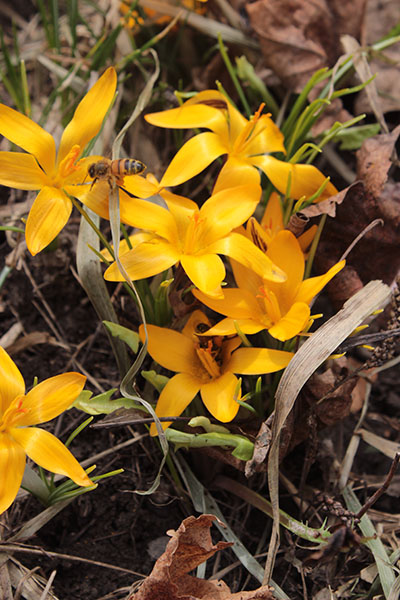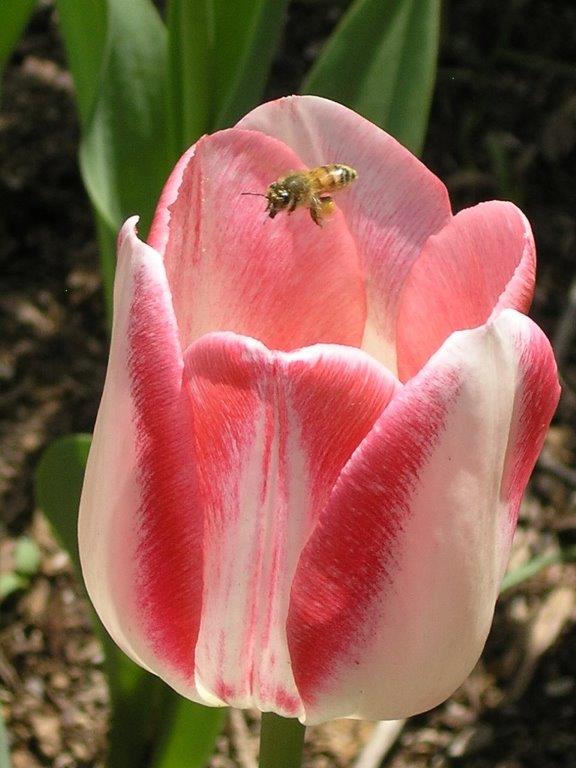


National Pollinator Week is June 20-26 this year and we’re hoping gardeners everywhere will join the celebration. It’s a time to spread awareness about how important pollinators are and how we can support their populations, many of which are declining due to habitat loss and pesticide use. As the organization Pollinator Partnership says, “Birds, bats, bees, butterflies, beetles, and other small mammals that pollinate plants are responsible for bringing us one out of every three bites of food. They also sustain our ecosystems and produce our natural resources by helping plants reproduce:” You can look for local events like walks, webinars, plantings and parades on their website’s map https://www.pollinator.org/pollinator-week. As gardeners, we can help by growing pollinator-friendly plants to provide a long season of bloom and habitat. In our Northern climate, honeybees need nectar and pollen earlier than many of our native trees and flowers bloom, so bulbs that bloom in early spring help support them then. Our bee-keeping friend and customer Eileen Dickinson says that “winter aconite and crocus are really important early bulbs. I see bees all the time in the Scilla siberica, bringing blue pollen into the hive. Grape hyacinths are good. And of course summer-blooming German garlic.” We’ve also found that ‘Atom’ glads are great for hummingbirds and bees love single and collarette dahlias. For specific suggestions to support your local pollinators you can find regional plant lists from the Xerces Society https://xerces.org/pollinator-conservation/pollinator-friendly-plant-lists and the Pollinator Partnership https://www.pollinator.org/guides.











